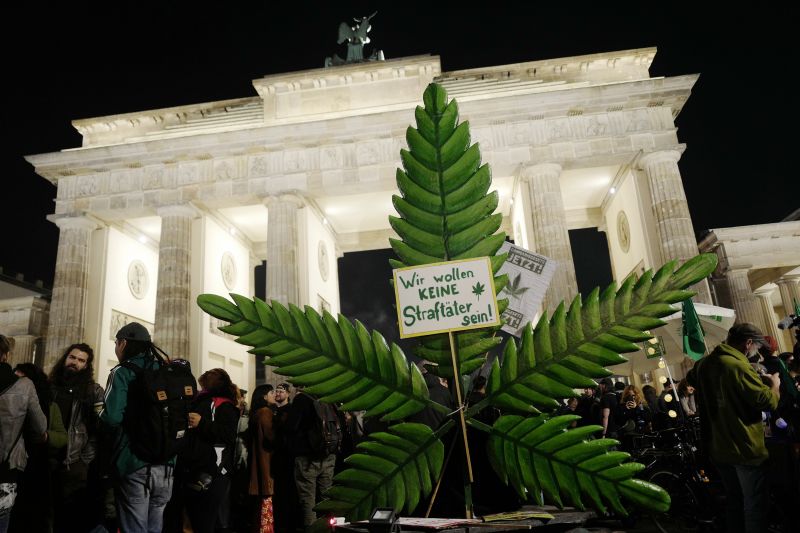Crowds gathered in Germany overnight to celebrate the legalization of cannabis starting from Monday.
There was music and dancing at the Brandenburg Gate in central Berlin, where attendees waved placards and blew clouds of smoke into the air.
One person could be seen cycling through the crowd dragging an artwork of a giant cannabis leaf on a trailer behind their bike, while another ceremoniously rolled a joint in front of television cameras.
Last month, Germany’s lower house of parliament voted to legalize cannabis for limited recreational use following a controversial national debate about the pros and cons of allowing easier access to the drug.
Health minister Karl Lauterbach hailed the move in a post on X on Monday.
“Cannabis use already existed yesterday, but it’s increasing. Now it’s exiting the taboo zone,” he wrote.
“This is better for real addiction help, prevention for children and young people and for combating the black market, for which there will soon be an alternative.”
The new rules mean adults can possess small amounts for personal use but the drug remains banned for under 18s.
Under the new legislation, put forward by Germany’s ruling coalition party, adults can cultivate up to three plants for private consumption and be allowed to possess 50g at one time at home, and 25g in public, starting from April 1.
From July 1, cannabis will be available in licensed not-for-profit clubs with no more than 500 members – all of whom would have to be adults. Only club members would be allowed to consume their output.
The German government said that cannabis would remain illegal for minors and highly restricted for young adults, adding that consuming the drug near schools and playgrounds would be illegal.
The move makes Germany the third country in Europe – after Malta and Luxembourg – to legalize the drug for recreational use, removing cannabis from the official list of banned substances.
The Netherlands bans possession of drugs but some municipalities permit them to be sold in coffee shops under its so-called policy of toleration.
In other countries, like Australia and the US, rules vary in different localities.

